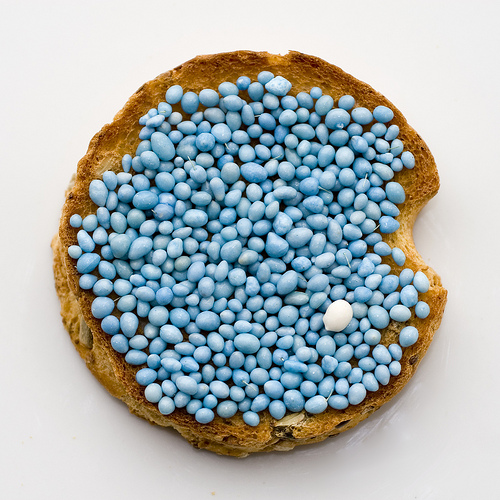A Dutch citizen service number is a type of personal registration code. It is commonly referred to as a ‘BSN’ in Holland. Everyone who lives in the Netherlands, including expats, is obligated to register for his or her own BSN. Without one, you will not be able to get by in the Netherlands! You need your BSN for work, for insurance, for taxes and for many more essential matters. On this page we will briefly outline the process of registering for your citizen service number. Read on to find out about the procedure, and to learn more about the function of your BSN in NL.
 Tip
Tip
- Arranging your citizen service number is a first step that must be taken care of once you have moved to the Netherlands
- Please note that, before you even travel to Holland, you must have the correct ‘Dutch visa and residence permit’!
Who needs a Citizen Service Number?
In Dutch, a citizen service number is called a ‘burgerservicenummer‘. This is often shortened to ‘BSN’.
All expats who come to the Netherlands need to have their own Dutch Citizen Service Number. You must arrange your BSN if you:
- Are going to reside in the Netherlands for at least four months
- Are legally employed in the Netherlands!
- Have a family member who legally works in the Netherlands, and you live here with them as an expat
- Are registered with a temporary job agency in Holland
- Have come to Holland to study as an international student, even if it is for under a year
- Reside in NL and you need, in any way, to deal with a Dutch government organization
 Side Note
Side Note
Please note that you, and your family, will need more than just a BSN number in order to live in NL. You are also obligated to have a:
- Valid passport
- Visa, depending on where you have moved from
- Residence permit, depending on where you have moved from
Registering with your Municipality
If any of the above apply to you, you are legally obligated to register at your local municipality. Here are the bullet points:
- You will be listed on your municipality’s ‘Basis Registratie Personen‘
- This is the Dutch ‘Personal records Database’
- It is often referred to as the ‘BRP’ in Holland
- You need to register within five days of your arrival in NL
- Once you have registered, you should receive your personal Citizen Service Number
- Depending on which municipality you have registered with, you might receive your BSN number straight away. Or, it could be sent to you within a few days by mail
Using your BSN in NL
When will you use your Dutch Citizen Service Number?
You will frequently be asked for your BSN number in NL. For example, you will need it in order to:
- Pay the correct taxes
- Receive your wages
- Arrange to receive benefits from the Dutch government
- Receive a rent subsidy
- Pursue a higher education in NL
- Arrange health insurance
Registration for Non-Residents in NL
If you are not a resident of the Netherlands, or you will be staying in Holland for fewer than four months, you need not register with the BRP. However, you can opt to do so voluntarily:
- If you do this, you will be issued your own Dutch citizen service number
- You will, however, be registered with the ‘RNI’
- This stands for ‘Registratie Niet Ingezetenen‘, and translates as ‘Register for Non-Residents’
Using your RNI Registration in NL
This is an advisable measure to take, if you need to arrange any tax-related matters during your time in NL. These might include affairs related to your:
- Pension
- Benefits
- General Old Age Pension (AOW)
If your stay here ends up being extended beyond the initially-intended four months, you will be de-registered with the RNI. You will be officially registered as a resident of Holland, but will keep the Dutch citizen service number you were initially given.
In principle, anyone who is given a Dutch citizen service number will keep it for the rest of his or her life! Even if they move to another country.
 Tip
Tip
Carrying ID in NL
As well as registering with your municipality, you are also obligated to carry ID at all times in NL. This rule applies to all people over the age of 13.
In Holland, legal forms of ID include:
- A passport (for EU nationals)
- A valid aliens document (for non-EU nationals)
- A driver’s license (for Dutch nationals, who may also show a passport)
- An identity card (Again, for Dutch Nationals)
There are a few further stipulations:
- Photocopies of the documents mentioned above will not be accepted
- Nor will an invitation to the police to come and check your documents at your home
- It is not enough for children over the age of 13 to be included in their parents’ passport
- They must possess, and carry, their own papers themselves
If you cannot Show your ID in NL
If you fail to adhere to the aforementioned regulations:
- You may be taken to the police station for identification
- You run the risk of being charged a fine
- This will be in the region of €45, if you are under the age of 16
- If you are over 16, you risk being charged € 90
- In extreme cases, this figure could go up to as much as € 2,250!
- Therefore, we advise you to abide by the rules!
- If store or building security officers ask you for your ID, you are not obligated to show it to them
- They will, however, have the right to deny you entry, or escort you out of, their building
 Useful links
Useful links

Everything you need to know about c ...
As an expat in the Netherlands, there might be a couple of traditions that will ...

The UnDutchables 9.0
Following the legendary previous eight editions of The UnDutchables, the 9th edition of this all ...

Gift giving in the Netherlands-all ...
If you feel like skipping your birthday, you may be in for a challenge when ...

The American Netherlander - 25 Year ...
In 1994, author Greg Shapiro came to the Netherlands. The idea was to spend a ...

How to Meet Locals in Amsterdam
Being far from home in a foreign city or country can be one of the ...

Typical Dutch Festivities
In the Netherlands, the Christmas season is marked by a sequence of typical Dutch festivities ...

Special Occasions the Dutch way
The Dutch love to mark a special occasion. What's more, for each one, they ...

Dutch Customs and Etiquette
The Netherlands has its own unique set of customs. There is an etiquette for how ...